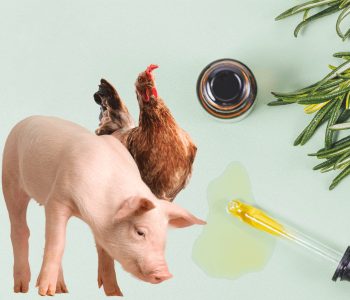The use of phytobiotics in animal feed has seen a significant rise over the past two decades. Excessive use of in-feed antibiotics has raised concerns about the increasing resistance in human pathogens, leading to bacterial resistance and antibiotic residues in animal products. This has driven the ban on in-feed antibiotics in many developed countries. Researchers and nutritionists have recommended phytobiotics as an alternative.
Numerous studies have demonstrated the antimicrobial, antioxidant, anti-inflammatory, and growth-promoting effects of phytobiotics. Their antioxidative function can positively impact the stability of animal feed, enhancing the quality and shelf life of animal products. Generally, existing research indicates that phytobiotics positively affect poultry and swine performance, although further studies are needed to explore various nutritional aspects.
The development and widespread use of antibiotics in livestock over the past 50 years have significantly improved livestock performance. However, public awareness of the health risks and environmental issues associated with synthetic pharmaceuticals, including in-feed antibiotics and growth hormones, has shifted attitudes towards these substances. Research has highlighted the potential health risks of microbial resistance among human pathogens due to continuous antibiotic use in animals. This led to the ban on Antibiotic Growth Promoters (AGPs) in livestock in the early 2000s in many developed countries, increasing infections by pathogens and negatively affecting commercial animal performance.
Growth Promoting Effects
Plenty of phytogenic feed additives (PFAs) have been investigated over the last two decades. Studies generally report that adding herbal products to animal diets promotes growth in poultry and swine. Improved performance in pigs has been observed with diets supplemented with essential oils, enhancing weight gain and nutrient digestibility. Studies on broiler chickens and meat-type ducks have shown similar improvements in body weight gain (BWG) and feed conversion ratio (FCR).
Influence on Palatability and Gut Function
Phytobiotics are often claimed to enhance the flavor and palatability of feed, thus improving production performance. However, some studies have shown dose-related detrimental effects on palatability when feeding pigs with essential oils. Conversely, there is evidence that adding PFAs to animal diets can improve feed intake and digestive secretions, enhancing enzyme activity and nutrient absorption.
Antimicrobial Action
Antioxidant and Anti-Inflammatory Action
S0urce: “Phytobiotics in poultry and swine nutrition – a review“
Mohsen Mohammadi Gheisar e Em Ho Kim
You may also like to read: ”
